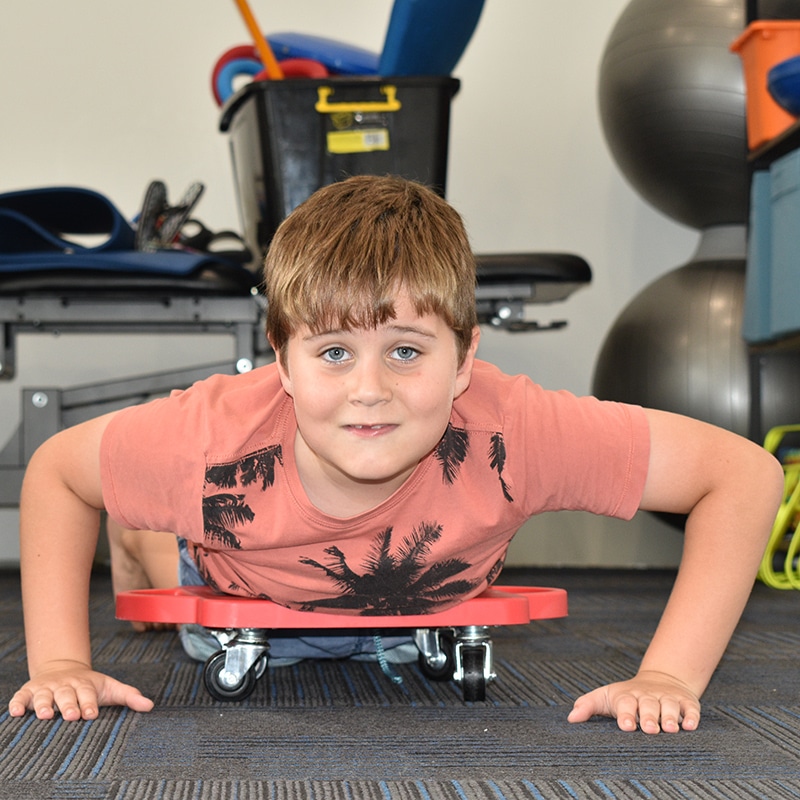Exercise Physiology For Kids
Essential for learning, social skills, cognitive and physical development.
Exercise Physiology For Kids
Essential for learning, social skills, cognitive and physical development.
What is Exercise physiology For Kids?
Movement is the centre of development in kids. It is essential for learning, social skills, cognitive and physical development.
Our exercise physiologists provide exercise based therapy, hydrotherapy, DMI intensive programs, home exercise plans and education in a play based environment to assist children in maximising their physical skills to assist with day to day tasks.
Making therapy fun through play
Kids learn through play. When we play we engage our senses, we move our bodies, we explore our environment, and we use our imagination. These are all key components of motor skill development, social and emotional development, and research shows us that lack of play as a child has severe pathological implications (Anderson et al, 1987).
Play based therapy has many benefits:
- Strong social-emotional development
- Promotes self-awareness
- Encourages creativity
- Promotes concentration and organisation
- Provides a source of self motivation
- Can lead to persistent effort & practice
- Enhances problem solving skills
How does Exercise physiology differ to Paediatric Physiotherapy?
Exercise Physiology and Physiotherapy are very similar and there is a lot of overlap. We both often have similar goals for treatment.
As Exercise Physiologists we use exercise as the basis of our treatment. We provide exercise programs to assist build key areas such as strength, coordination, balance, fitness and general mobility. In paediatrics, these exercise programs are play based. For example: we need to build lower body strength to help with running and jumping. In adults, we might do something like squats, for kids, this might consist of bending down to pick puzzle pieces off the ground and then sticking them on a wall to build the puzzle.
Physiotherapists differ from Exercise Physiologists in that they often use manual therapies to form part of their treatment. They are also able to assist in providing a diagnosis for certain conditions such as muscle tears and strains. Exercise Physiologists are able to assess and provide rationale but cannot definitively diagnose.
Anderson J, Hinojosia J, Strauch C (1987): Integrating Play in Neurodevelopmental Treatment. The American Journal of Occuaptional Therapy. July 41(7) p 421[1]

